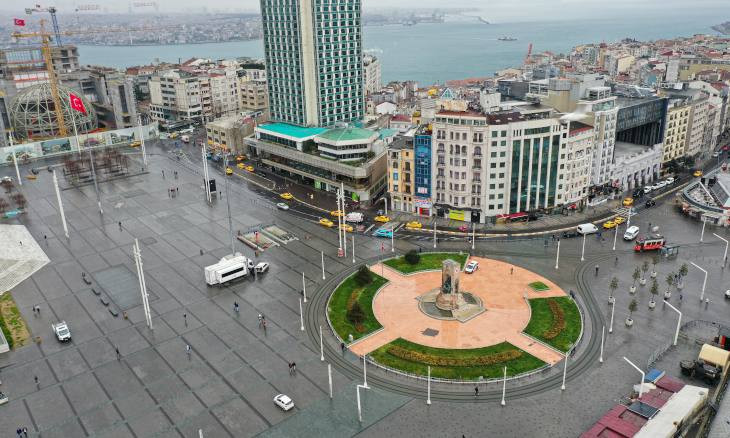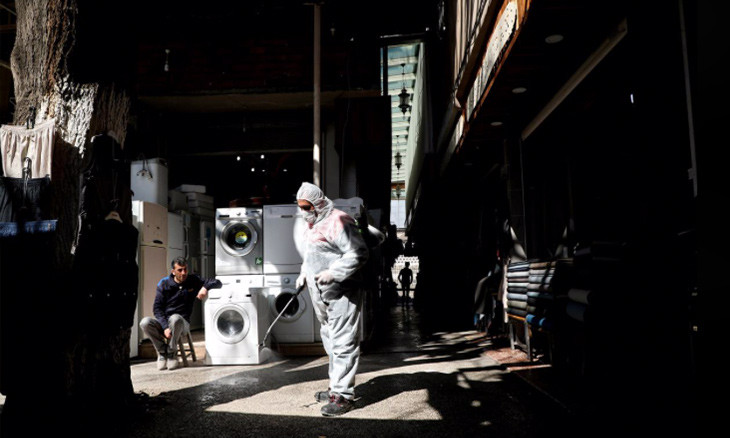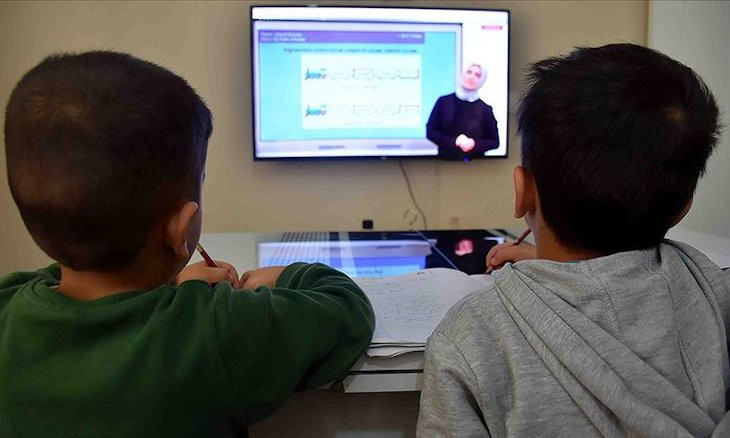Lack of precautions in Turkish border province Mardin where 500 people quarantined causes concern
The southeastern border province of Mardin is lacking precautions against the coronavirus, particularly among the trade workers who regularly travel across the Turkish border, the local medical chamber co-chair said. “As far as we know, we have about 500 residents under home quarantine right now, most of them drivers,” Dr. Osman Sağlam said.
Vecdi Erbay / DUVAR
Precautions against the coronavirus in Turkey’s southeastern border province Mardin are insufficient, the local medical chamber’s co-chair said, adding that the local trade traffic is as busy as ever.
The province is a trade hub for the region, which includes Iraqi Kurdistan, Iran, and western Asian nations, Dr. Osman Sağlam said.
“The World Health Organization’s preventative measures aren’t taken for the crossings of these people. The border staff tries to detect Covid-19 with simple checkups and temperature checks,” Sağlam said.
The government was too late in taking federal precautions, which led to the mandatory home-quarantining of Mardin residents.
“As far as we know, we have about 500 residents under home quarantine right now, most of them drivers,” Sağlam noted, adding that the residents were mostly in the border districts of Kızıltepe and Nusaybin.
On the other hand, many doctors are reluctant to officially diagnose patients with coronavirus, Sağlam said, adding that one physician was forced to go on leave for identifying a patient with the virus.
“There are many patients that doctors fear diagnosing. Honestly, both private and public hospitals pressure physicians into not diagnosing patients with the virus,” Sağlam said.
 Study shows correlation between socioeconomic status and levels of self-isolation in Istanbul
Study shows correlation between socioeconomic status and levels of self-isolation in IstanbulMisconceptions about coronavirus in the public
The government’s mishandling of the coronavirus precautions led to public indifference, Sağlam said, adding that many local factories continue to operate with hundreds of workers crammed into small spaces.
Noting that the public has come to believe that older citizens might be infected with the coronavirus, Sağlam said that this is a result of the government’s emphasis on the elderly as a high risk group.
“The whole narrative has been centered around the elderly. But the real danger is the ignorant youth who are allowed to be out on the streets,” Sağlam said.
 More people in Turkey worried about unemployment than about coronavirus pandemic
More people in Turkey worried about unemployment than about coronavirus pandemic‘We need equipment, not applause’
The Mardin Medical Chamber tried to get in touch with the provincial health directorate, but got no response, Sağlam said, adding that they should have been included in the regional crisis management.
“So we’re unable to give any feedback.”
Instead, local professional organizations formed a “health platform” to release a press statement and meet with political parties.
“With the Healthcare Workers Union (SES) and the Turkish Dental Association we released a press statement. The Human Rights Association (IHD) inspected local prisons,” Sağlam said.
However, what the local health workers really need is equipment, Sağlam said, adding that the nationwide shortage of protective medical gear is also applicable to Mardin.
“We don’t need your applause, we need equipment,” Sağlam said, referring to the nightly nationwide applause to thank healthcare workers.
 Turkish health, education ministers to make joint statement on whether school break will be extended
Turkish health, education ministers to make joint statement on whether school break will be extendedThe southeastern border province of Mardin is lacking precautions against the coronavirus, particularly among the trade workers who regularly travel across the Turkish border, the local medical chamber co-chair said. “As far as we know, we have about 500 residents under home quarantine right now, most of them drivers,” Dr. Osman Sağlam said.
